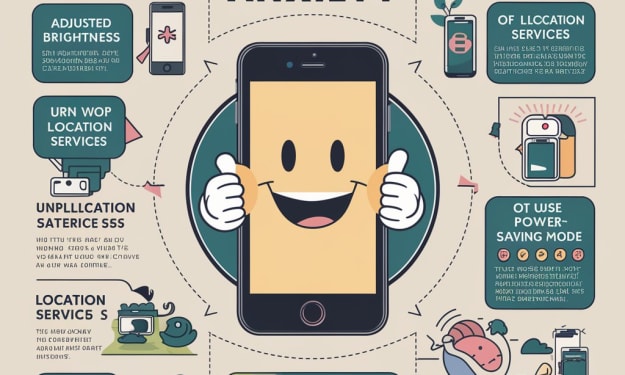Mastering the Art of Self-Year-End Performance Reviews
A Comprehensive Guide to Writing an Impactful Self-Year-End Performance Review

The self-year-end performance review is a crucial element of the professional development cycle. More than just a formality or a simple recounting of your day-to-day tasks, it serves as a powerful tool for self-reflection and goal setting, provides a platform for showcasing your skills and contributions, and plays a pivotal role in career progression. However, writing an impactful self-review can be a daunting task. Let's dive deeper into the process, offering a comprehensive guide on how to craft a standout self-assessment that can truly elevate your professional profile.
Understanding the Scope and Purpose
The first step in crafting an effective self-review is to truly understand its purpose. A common misconception is to view the self-review as a mere summary of your job duties or a routine task that your organization requires. In reality, self-review serves several essential functions.
It's your opportunity to demonstrate your value to your organization, highlighting how you've contributed to the company's goals. It's also a chance to reflect on your professional journey over the past year, showcasing your achievements, learning experiences, and personal growth. Lastly, it's a platform to align your career trajectory with your organization's vision, setting the stage for future successes.
Reflective Preparation
A well-prepared self-review starts with thoughtful reflection. Consider the past year and its many facets - the projects you've tackled, the problems you've solved, the skills you've developed, and the goals you've achieved. Don't forget to contemplate the obstacles you've encountered and the strategies you've used to overcome them. This holistic view of your year will provide a solid foundation for your self-review.
To further bolster your review, gather evidence that substantiates your reflections. This could include project reports that demonstrate your work, feedback emails from clients or colleagues commending your efforts, or metrics that quantify your performance. Having this supportive material at hand will make your achievements tangible and your self-review more compelling.
Structuring Your Self-Review for Maximum Impact
The structure of your self-review can significantly impact its effectiveness. A well-structured review is easy to follow and highlights the key points without unnecessary fluff. Here's a recommended structure to follow:
Introduction: Begin with a concise overview of your role and responsibilities. This sets the context for your review and allows others to understand the scope of your work.
Key Accomplishments: Next, delve into your most significant achievements. Be specific, providing examples and data where possible. Describe the impact of these achievements, aligning them with the broader organizational goals.
Challenges and Solutions: Following your accomplishments, discuss the challenges you encountered and how you addressed them. This section demonstrates your problem-solving skills and resilience. Include what you learned from these experiences and how they contributed to your professional growth.
Areas for Improvement: Honesty and self-awareness are key in this section. Identify areas where you could improve, offering a balanced view of your performance. Show that you view these areas not as weaknesses, but as opportunities for growth and development.
Future Goals: Finally, outline your goals for the upcoming year. Ensure these goals align with the organization's objectives, showing that you're invested in the company's success as well as your own.
Essential Dos and Don'ts
As you craft your self-review, keep these dos and don'ts in mind:
Do:
Be Specific: General statements can be vague and unconvincing. Use specific examples, data, and supportive evidence to demonstrate your achievements.
Show Self-Awareness: A good review showcases not just your accomplishments but also your self-awareness. Acknowledging your challenges and areas for improvement shows you're open to learning and growth.
Align with Company Goals: Show that you're not just focused on your own success. Highlight how your work contributes to the organization's goals and objectives.
Be Honest, but Positive: Discuss your challenges and areas for improvement, but always maintain a positive tone. Frame these as opportunities for growth and learning.
Don't:
Underestimate Yourself: It's easy to downplay our own achievements. But remember, your self-review is your opportunity to shine. Don't be shy to highlight your accomplishments and contributions.
Overinflate Your Achievements: While it's important to showcase your achievements, honesty is key. Exaggeration can harm your credibility and undermine the effectiveness of your review.
Ignore Feedback: If you've received feedback from your manager, colleagues, or clients during the year, incorporate it in your review. Show that you're receptive to feedback and committed to using it for improvement.
Get Defensive: No one is perfect. It's okay and expected, to have areas for improvement. Embrace them as opportunities for growth rather than seeing them as negative criticism.
A self-year-end performance review is a vital tool in your professional development toolbox. By allowing you to showcase your accomplishments, demonstrate your value, and align your future goals with your organization's vision, it sets the stage for career growth and success. By taking the time to reflect on your year, prepare supportive material, structure your review effectively, and adhere to the recommended dos and don'ts, you can craft a self-review that truly stands out.
Remember, this is your chance to highlight your unique contribution to the company and articulate your vision for the future. So, approach it with the attention and dedication it deserves. With careful preparation and thoughtful execution, you can transform your self-review into a powerful instrument for professional growth and advancement.
About the Creator
Patrick Ferriol
I am a loving husband and father. I'm an entrepreneur and an aspiring DIY enthusiast. I share my journey through content while inspiring others along the way.






Comments
There are no comments for this story
Be the first to respond and start the conversation.